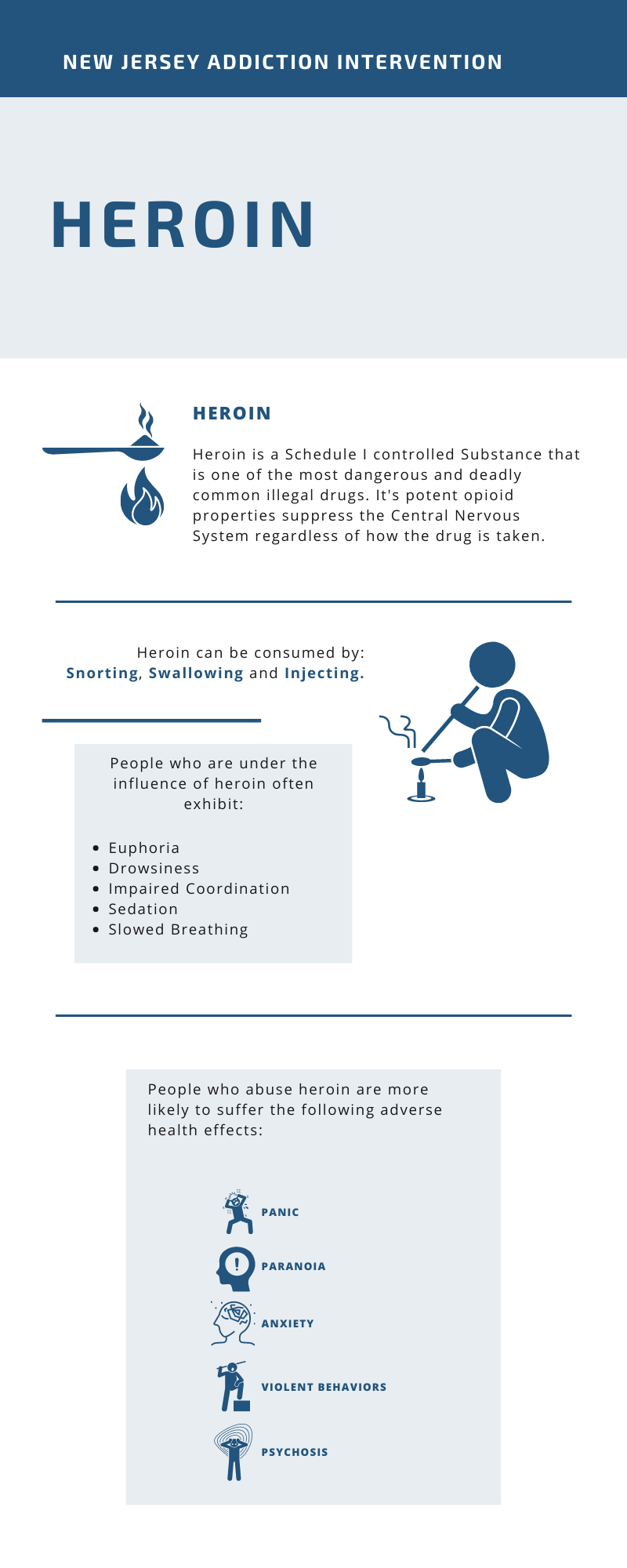Getting sober isn’t easy, especially if you’re addicted to a drug as powerful as heroin. The first obstacle that heroin addicts face is withdrawal. Anyone who’s addicted to opioids knows that withdrawals present themselves with a rapid onset of flu-like symptoms and nagging psychological cravings for the drug. Not only does this make the thought of getting sober dreadful, but it’s terribly difficult to endure withdrawals without help from a professional heroin detox center in New Jersey.
It’s no secret that opioid and heroin addiction have devastated families and communities across New Jersey. In fact, in 2018, opioids were involved in 90% of all overdose deaths in the state – a number higher than the national average.[1] As a result, the need for trusted and reputable opioid treatment facilities in the area is on the rise.
Of course, medical detox is only the first step to recovery. Some of the most important work and healing happens during treatment. However, you have to get over the initial fear of detoxification first. That’s why we’ve put together a step by step guide so you know exactly what to expect at heroin detox centers in New Jersey.

Heroin Withdrawal Symptoms
After abusing heroin for some time, people become physically and mentally addicted to the drug. As a result, when they stop using and decide to get clean, the body goes through an adjustment period where it tries to reach homeostasis, or balance, without heroin in the bloodstream. This adjustment period is when withdrawal symptoms rear their ugly head.
The severity of your withdrawal symptoms will vary depending on a variety of factors. For example, if you’ve been using more heroin more frequently than your friend, your symptoms might be worse. In addition, if you suffer from a mental health condition like depression or bipolar disorder, some of your symptoms might seem more severe.[2]
During heroin withdrawal, you can expect any or all of the following:
- Muscle aches
- Restlessness and anxiety
- Eyes tearing up
- Runny nose
- Cold sweats
- Insomnia
- Excessive yawning
- Crampings and diarrhea
- Vomiting and nausea
- Goosebumps
- Dilated pupils
- Blurry vision
- Rapid heartbeat
- High blood pressure
- Depression
Some symptoms begin just hours after a person takes their last dose and may last for several days. Fortunately, most major symptoms subside after 5-7 days.
Although heroin withdrawal typically isn’t life-threatening, it isn’t easy by any means. Not only that, but you never know what complications you may experience or how strong your cravings will become. That’s why it’s essential to seek help from a heroin detox near you instead of attempting to detox cold-turkey.
Heroin Detox: Step by Step
Detoxification is the process in which a harmful substance is removed from a person’s body. Whether done naturally or by medication, detox is different for everyone. In general, when you check into a heroin detox in New Jersey your treatment will consist of three phases:
- Intake
- Medical detox
- Treatment preparations
Throughout the process, the most important thing you can do is to listen to the advice you are given by medical and clinical addiction specialists.
Intake/Assessment
The first step in any type of addiction treatment program is intake. During the intake process, you will meet with an addictions counselor and a medical professional so they can design a treatment plan that meets your needs. You might be asked questions about:
- Your family medical history
- Your medical history
- What withdrawal symptoms you are experiencing
- How long you have been using heroin
- Whether or not you are addicted to other drugs and/or alcohol
- Your mental health
- What medications you are taking
- What your treatment goals are
It’s important that you answer these questions honestly and to the best of your ability. After all, this process helps pave the way for the beginning of your sobriety.
Medication-Assisted Detox in New Jersey
Once your initial assessment is over, you will be taken to your room and the detox process will begin. Since heroin addiction produces painful withdrawal symptoms, medical detox centers administer FDA-approved medications that help minimize withdrawal symptoms and stabilize the body.
The most common medication used to help treat opioid withdrawal is Suboxone. Suboxone contains buprenorphine and naloxone to help block opioid receptors and cease withdrawal symptoms. Some patients might only take this medication while in detox, while others will take it for varying lengths of time.[3]
During detox, medical professionals are available 24/7 to intervene in the event of an emergency. They are also prepared with anti-nausea medications and sleep medications to help people remain comfortable throughout the process.
Not only do patients have support from medical staff, but they also have access to peer support, professional counselors, and group therapy sessions. This way, you can begin your treatment process as soon as possible – without wasting any time. The most important thing is that you feel safe, comfortable, and supported throughout your time in detox.
Treatment Planning
Unfortunately, recovery doesn’t end with detox. The purpose of a detox program is to help you through withdrawals, clear your mind and body, and prepare you for the real work. Once you’re physically stable and are ready to leave detox, on-site addiction specialists will help you create a treatment plan that meets your individual needs.
For some people, this could look like 6 months of outpatient treatment. For others, it could look like 28 days of residential rehab followed up with aftercare. Whatever the case may be, finding the addiction treatment program that will serve your needs and provide you with the tools needed to stay sober is key.
Get Started With Heroin Detox in New Jersey Today
In the end, going to a New Jersey heroin detox center isn’t as scary as it sounds. Staff is there to support you, your peers are there to empathize with you, and medications are there to relieve your withdrawal symptoms. If you or a loved one is addicted to heroin, don’t wait another minute. Picking up the phone to get help can make the difference between life and death. Contact our addiction specialists in New Jersey today to get connected with the best drug and alcohol detox and treatment providers in the area.
References:
Medically Reviewed: June 13, 2020

All of the information on this page has been reviewed and verified by a certified addiction professional.

